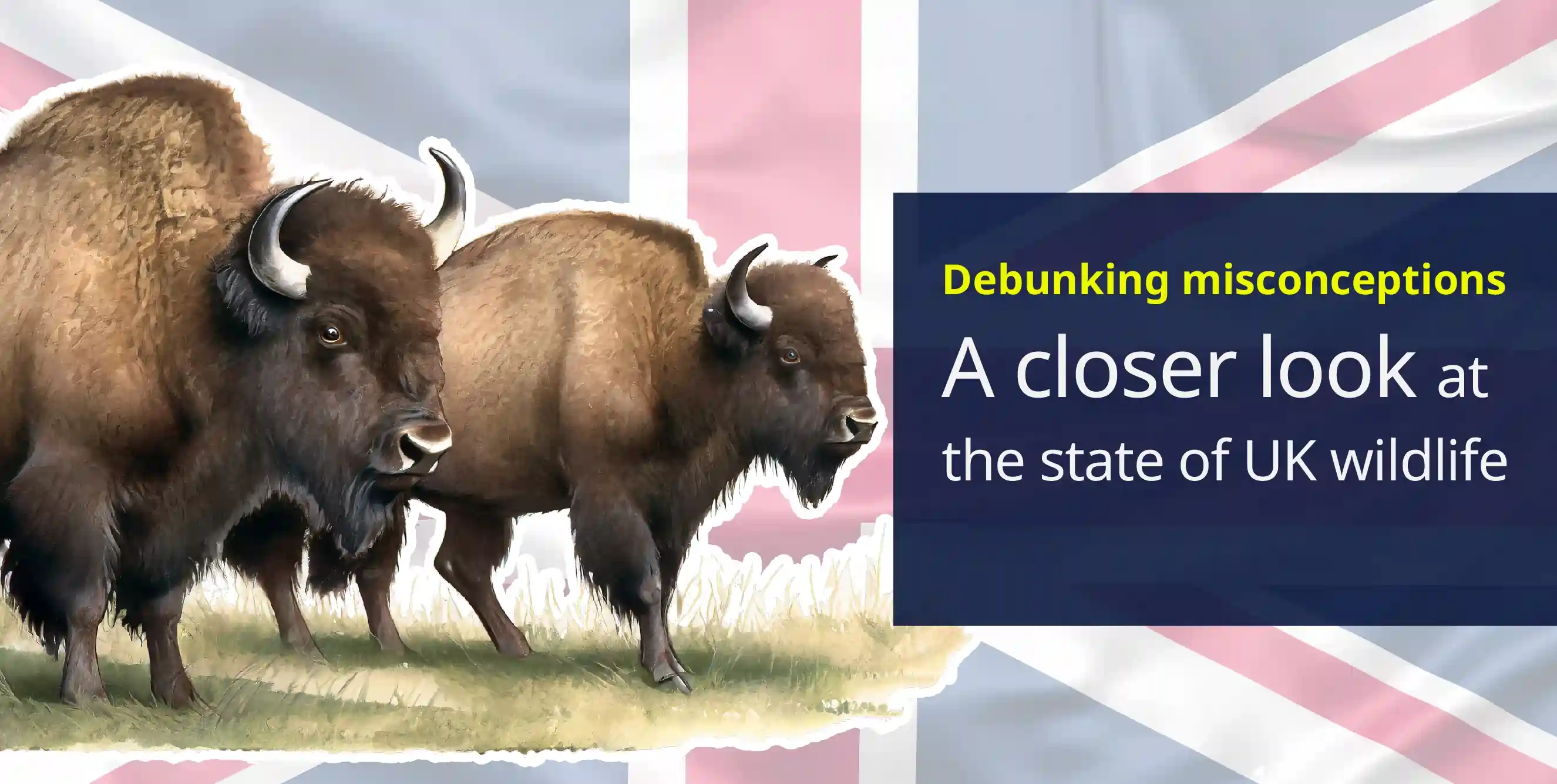Debunking misconceptions: A closer look at the state of UK wildlife
22-Jul-2024

Mark Eves
Ladies and gentlemen, let's dive into the recent news article that paints a rather bleak picture of the state of UK wildlife. While it's essential to acknowledge the challenges our ecosystem faces, it's equally crucial to approach these issues with a balanced perspective. As a pro-hunting advocate, I'm here to offer a more nuanced view on the matter.
The "State of Nature" report, which has garnered a fair share of attention, suggests that the UK's biodiversity is on a downward spiral due to farming, climate change, and various human activities. While this report certainly sounds ominous, let's break it down step by step.
Farming and conservation
It's no secret that farming practices have evolved over the years. Farmers today are more conscious of conservation efforts and are working to implement sustainable practices. Many conservation initiatives are taking root within the farming community, which is a win-win for wildlife and agriculture.
Climate change
Climate change is undoubtedly a global concern, but let's not forget that responsible hunting and wildlife management can contribute positively. For example, culling deer populations can help protect vulnerable plant species from overgrazing, mitigating some of the ecological impacts.
Unsustainable fishing
Sustainable fishing practices are gaining momentum, thanks to the efforts of both commercial and recreational fishermen. Catch-and-release programs, size limits, and closed seasons are helping preserve fish stocks and aquatic ecosystems.
Marine development
Marine development doesn't inherently spell doom for wildlife. Properly managed marine conservation areas can coexist with development, striking a balance between human needs and ecological preservation.
Hunters as conservationists
It's worth highlighting that hunters and shooters play a significant role in conservation efforts. Through licensing fees and donations, they fund initiatives to protect and restore wildlife habitats. Many pro-hunting organisations are deeply committed to the well-being of our natural world.
Let's also remember that the "State of Nature" report might not fully capture the positive strides made in wildlife management. The decline in some species can be attributed to natural population fluctuations and not necessarily human interference.
Furthermore, it's essential to acknowledge that hunters and shooting enthusiasts understand the delicate balance within ecosystems. They are among the most ardent advocates for responsible land and wildlife management. The sustainable harvest of game species helps maintain balanced populations and healthier habitats.
In conclusion, while we should take reports like "State of Nature" seriously, we must approach them with a discerning eye. The situation is not as dire as it may seem, thanks to the dedication of conservationists, hunters, and those who understand that responsible management and wildlife stewardship go hand in hand. So, let's continue to support the sustainable practices that ensure the future of both our cherished traditions and our precious wildlife.
Must read:
- Harmonising deer hunting seasons in England and Scotland: A scientific perspective
- The pros and cons of eating deer meat (venison)
- Browning B15 vs. Beretta EELL: The case for the browning beauty
- The AR-15 .22LR rifle in the UK: Dispelling myths and embracing fun
- Managing effective beating for pheasant shooting: A comprehensive guide
